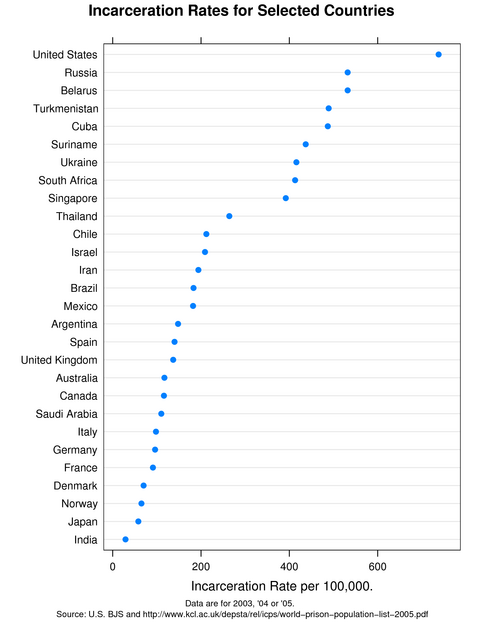Between grading, our four month old, and a forthcoming CT seminar, I haven’t had much chance to write book reviews recently (I have a couple backed up, including one of Glyn Morgan’s _The Idea of a European Superstate_, which I’ve had half-written since last summer and promise to finish in the next few weeks). In the meantime, I have read a couple of SF/F books recently which I’d recommend as fun summer reading for those so inclined. First, Charles Stross’s _The Clan Corporate_ (Powells , Amazon), which I enjoyed more than his _Accelerando_, even though the latter has been nominated for umpteen awards. It’s the third of a series, and demonstrates that Stross has a nasty sociological imagination . There’s a nice set-up in the second book of the series where the protagonist (a vaguely left-wing journalist) argues that there’s simply no reason why the king and assorted nobles of a particularly squalid mediaeval state wouldn’t welcome industrialization, as they’d all get rich. You can nearly hear the author cackling into his sleeve as he writes this, and _The Clan Corporate_ demonstrates at length how horribly blase liberal assumptions of this sort can go wrong. _A Connecticut Yankee_ it isn’t. Second, Naomi Novik’s _His Majesty’s Dragon_ (Powells, Amazon,) and its follow-up, _Throne of Jade_ (the third book in the series is coming out in a couple of days). The premise for these books sounds almost preposterously horrible – Patrick O’Brian meets Anne McCaffrey – but it _works_. Somehow she reconciles a story about intelligent dragons and their human riders with an early nineteenth century England that is very similar to our own. It helps that Novik’s a very good writer, and quietly witty too. Both recommended.
Via Chris Uggen, some new Bureau of Justice Statistics for incarceration in the United States as of mid-2005. Imprisonment rose by 1.6 percent on the pervious year, and jail populations rose by 4.7 percent, for a total of just over 2.1 million people behind bars. The total population in prison has gone up by almost 600,000 since 1995.
Women make up 12.7 percent of jail inmates. Nearly 6 in 10 offenders in local jails are racial or ethnic minorities. In mid-2005, the BJS reports that “nearly 4.7 percent of black males were in prison or jail, compared to 1.9 percent of Hispanic males, and 0.7 percent of white males. Among males in their late 20s, nearly 12 percent of black males, compared to 3.9 percent of Hispanic males and 1.7 percent of white males, were incarcerated.” State by state, “Louisiana and Georgia led the nation in percentage of their state residents incarcerated (with more than 1 percent of their state residents in prison or jail at midyear 2005). Maine and Minnesota had the lowest rates of incarceration (with 0.3 percent or less of their state residents incarcerated).”

(You can get this figure as a PDF file if you like.)
Comparative context is provided by Roy Walmsley’s World Prison Population List. The U.S. has an overall incarceration rate of 738 per 100,000 people, the highest in the world. Belarus, Russia and Bermuda (!) come next, distantly trailing with rates in the 530s. Fifty eight percent of countries have incarceration rates below 150 per 100,000. There is a lot of heterogeneity within continents. I left China out of the figure above — its incarceration rate is 118, but this only includes 1.55 million sentenced prisoners, not trial detainees or those in “administrative detention.”
An interesting short film on Barbie, Jews, identity and about a million other topics. It is so packed with material – some of which seems extremely random – that it is hard to know where to even start with any commentary. See what you think.

Andrew Sullivan is trying to get to know his readers by asking them to send him pictures of the view from their windows. Not surprisingly, photo-sharing site Flickr has a group devoted to this topic linking to a whole separate Web site on window views. Kevin Drum responds with a view from his window. I’m afraid on this one, I win. If you post on Flickr, tag your photo with viewfrommywindow or add it to the group and post a link here. Alternatively, post a photo on “view from where I read CT”.
In this TNR piece (not sure if subscription required), Peter Beinart laments the Republican (mis)appropriation of the word “reform”, saying
“Reform,” in today’s Washington, has come to mean “change I like.” Which is to say, it means almost nothing at all.
However, he doesn’t really make it clear what alternative definition he proposes, and concedes, later on “today’s conservatives are reformers of the most fundamental kind”.
In fact, the whole set of ideas surrounding the terms “reform” and “progressive” are bound up with historicist assumptions that can no longer be sustained, namely that history is moving in a particular (liberal/social democratic/socialist) direction, and that any deviation from this path is bound to be short-lived and self-defeating. Reform is change that is consistent with this direction. But once you have, as Beinart notes, a decade or more of “reforms” that consist mainly of the repeal of earlier reforms, none of these assumptions works.
I’ve tried all sorts of devices, such as the use of scare quotes and phrases like “so-called reform”, before concluding that the best thing is just to define reform as “any program of systematic change in policies or institutions” and make it clear that there is no necessary implication of approval or disapproval, or of consistency with any particular political direction.